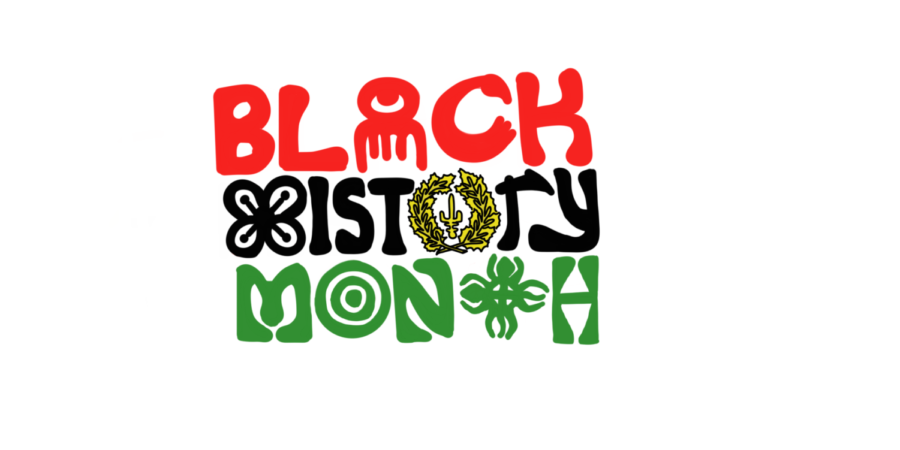February honors Black experiences since 1926
During February, people learn about and celebrate the achievements and culture of Black people throughout history. Although Black History Month lasts for only 28 days, it is important to pay tribute to their accomplishments any day of the year.
March 15, 2022
February is Black History Month, which recognizes and celebrates the achievements and culture of Black people throughout history. “It’s also a time where people can be educated on the unsung African American heroes that were influential in bringing about the importance of Black history and culture.” junior Mathias Mulugeta said.
Before Black History Month was established, what is now known as the Association for the Study of African American Life and History (ASALH) sponsored a national Black History week in 1926. The founders of the association, Carter G. Woodson, who is known as the “father of Black history” and Jesse E. Moorland, who was a prominent minister, established the event during the second week of February because both Abraham Lincoln and Fredrick Douglass’ birthdays occur during that time.
This occasion inspired many schools and communities across the United States to form history clubs, offer seminars and performances and host celebrations.
Woodson’s goal in having a weeklong dedication to Black history was to encourage public schools to teach it to students. “He and countless others took up the cause to honor the contributions of African Americans in all facets of life at a time in which racism and segregation were accepted norms,” history teacher Angela Robinson said.
As time went on, more people began to support the idea and by the late 1960s, Black History Week had grown into a month-long celebration. Protests about racial injustice and inequality had been a vital part in this.
After 50 years from the initial celebration of Black history, President Gerald Ford officially recognized Black History Month in 1976. Since then, every U.S. President has recognised it every year and many other countries such as Canada and the U.K. have also allocated a month to celebrate Black history.
Similarly to what Woodson did during every Black History week, the ASALH establishes a new theme every year for Black History Month. In recent years themes have been, The Black Family: Representation, Identity, and Diversity in 2021, African Americans and The Vote in 2020, and Black Migrations in 2019.
This year’s theme is Black Health and Wellness, which not only highlights Black practitioners and pioneers in western medicine but also people with alternative ways of improving and maintaining peoples health, like midwives, herbalists and naturopaths. This theme also helps acknowledge the inequity Black people face in healthcare.
Additionally, it highlights the importance of having more Black people working in the medical field and having representation of them doing so. “Initiatives to help decrease disparities have centered several outcomes, including having more diverse practitioners and representation in all segments of the medical and health programs including such as the Ronald E. McNair Scholars. Even the impact of popular culture texts like Doc McStuffins cannot be dismissed,” ASALH.org reports.
A pivotal part of Black History Month is the opportunity for non Black people to educate themselves on Black people’s experiences and cultures. “This month is essentially about celebrating and being educated in Black history and its impact so of course there would be much more resources to learn more about it,” Mulugeta said.
People can learn something new about Black culture and history by watching documentaries and reading books. Furthermore, learning from Black creators on social media can be a great way to learn about Black people’s experiences first hand, especially during this month. “I think it’s a lot easier for people to post when they know they have a community behind them…it’s helped people be able to say what’s on their minds,” Sophomore Lewhat Kahsay said.
During this month, RM students had the opportunity to participate in a Black History Townhall on the 16th during advisory, as well as, multiple community circles with their own advisory classes. “I think it’s imperative for you to check your own bias and try to dismantle stereotypes that society has taught each and every one of us about other races…once you participate in these events, you’re able to start educating yourself,” junior Jaiden Burney said.
Black History Month is a reminder to continue highlighting what Black people go through and encourage others to listen and learn. “I think that during this time and during every time over the year, it’s important to hear what we have to say because these aren’t things that are being made up, these are real life experiences that people have suffered through. So, I think listening can be a very powerful thing and I would love for people to listen more,” Kahsay said.
While it is critical to understand the negative aspects of Black history and experiences, it is also important to remember to appreciate Black culture and showcase the positive components of their history. “People always think about the oppression and the slavery aspect of my history… but people forget the numerous achievements that black americans have made in this country,” Burney said.
Students and teachers at RM take this month as an opportunity to wear their cultural clothing, make family recipes, learn more about their family history, and support Black owned businesses.
Black History Month serves many purposes, from honoring the discrimination Black people have and still do endure, to celebrating Black culture, and most importantly, bringing people together. “I think it’s a beautiful thing to be able to have 28 days to be able to honor a community that is so strong and beautiful,” Kahsay said.



